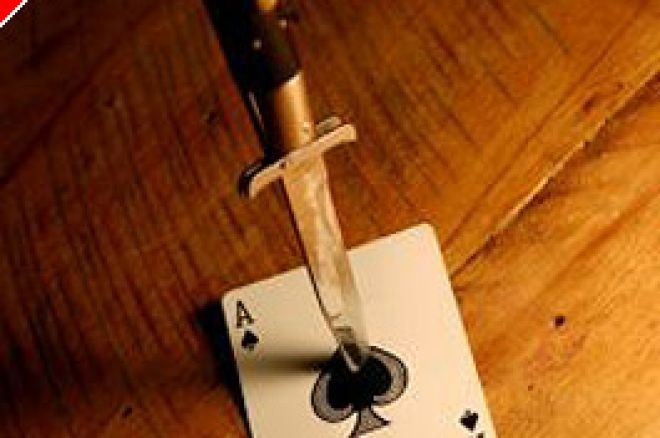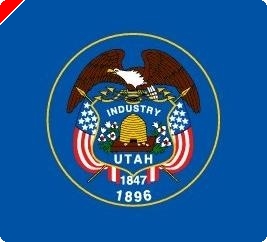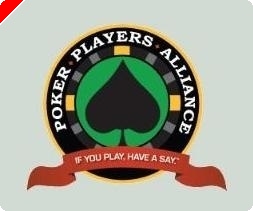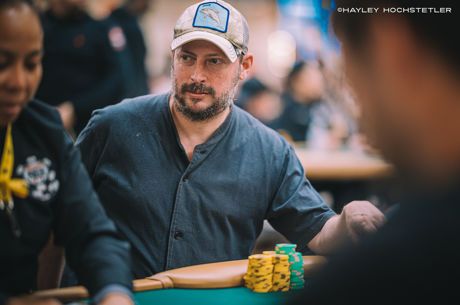Online Poker Sites Included in Alleged Australian Government Internet Blacklist

A leaked version of a secret blacklist allegedly assembled by Australian government authorities aiming to censor various adult-themed sites has been found to contain online poker and gambling sites, contrary to the announced intentions of the blacklist. The controversial list, purportedly authored by the Australian Communications and Media Authority (ACMA), lists sites scheduled to be secretly blocked by Australia's Internet service providers (ISPs) in a program currently undergoing a trial run. The list was leaked by whistle-blowing site wikileaks.com, a leading online foe of government censorship and a supporter of freedom of information.
The latest version of the disputed ACMA list, dated August 6, 2008, contains 2,395 domain names and Internet URLs, although the list is a compilation of original sources and weekly updates and includes many duplicated entries. The first entries date from 2007, shortly after the ACMA's plan was put into its trial phase, and runs through an update listed for August 6, 2008. The list was created with the intent of blocking access to child pornography, though if the contents of the Wikileaks list are accurate, it was expanded at least during the testing phase to include a far broader definition of "adult" sites. The ACMA's mandate also includes provisions to fine other sites and ISPs for listing or allowing access to the sites included on the blacklist (at AU $11,000 per day), and also risk being added to the blacklist.
These domain names connected to online poker or gambling were found on the list, which has been obtained by PokerNews:
bodoglife.com
ultimatebet.com
cdpoker.com
hollywoodpoker.com
fulltiltpoker.com
pokerstars.com
absolutepoker.com
paradisepoker.com
mansion.com
duplicatepoker.com (now closed)
betfair.com
888.com
coralpoker.com
goldenpalace.com
pacificpoker.com
partypoker.com
pokerroom.com
williamhillcasino.com
vegaspalms.com
gamblingclub.com
www.deadgamerecords.com/duplicate-poker/
The subdirectory of this site that appeared on the list as published by Wikileaks �� www.deadgamerecords.com/duplicate-poker/ �� is no longer active with its original content, though only because the corresponding site, Duplicate Poker, ceased operations in late 2008.
The publication of the list by Wikileaks caused an immediate uproar by Australian authorities connected with the ACMA. On the flip side, Wikileaks alleges that its own site was added to the blacklist on March 16th, just prior to the publication of the blacklist's contents, as part of the ACMA's push to keep the contents of the list unpublished.
Whether or not the Wikileaks list is the true ACMA blacklist as of the date of the final listed update (August 6, 2008) became a matter of heated debate mere hours after the Wikileaks list appeared. Australian Senator Stephen Conroy, at present the Minister for Broadband, Communications and the Digital Economy, decried the list's publication and termed it a fake. "This is not the ACMA blacklist," said Conroy, in a statement released only hours after the Wikileaks publication. "The published list purports to be current at 6 August 2008 and apparently contains approximately 2,400 URLs whereas the ACMA blacklist for the same date contained 1,061 URLs."
A preliminary analysis of the list by PokerNews showed 2,395 entries; however, the nature of the list's assembly, with weekly updates being inserted repeatedly at the top of the list, resulted in hundreds of duplicate entries. Six of the poker sites were among those with duplicated entries: fulltiltpoker.com, goldenpalace.com, pacificpoker.com, partypoker.com, pokerroom.com and williamhillcasino.com. Once these and other duplicated entries were removed, the total dropped to approximately 2,055 distinct URLs. A sweep for and removal of pages presumed to have been loaded illicitly as member accounts on such public sites as Yahoo! Groups, Geocities, Facebook and MySpace dropped the total near 1,900, with hundreds of other entries offering nearly identical URLS, as minor differences in domains (.com, .net, .info) accounted for many more nearly duplicated entries.
Still, the remaining overage lends some credence to Conroy's claims that the list is not the official ACMA list, but may instead be a preliminary list of sites about which complaints had been received earlier in the vetting and testing process. For instance, a note attached to the August 16th, 2007 entry reads: "Added the ones that must have been in the standard adult list." This and one other subsection have been noted as possible list "contaminants" by Wikileaks, though the site insists the complete list is in use within the software controlling the trial run. The ACMA list itself is an ongoing effort dating back to 2001.
Conroy, the official in charge of the ACMA's ongoing blacklist efforts, condemned the list's publication, stating, "The leak and publication of prohibited URLs is grossly irresponsible. It undermines efforts to improve cyber-safety and create a safe online environment for children." Conroy also admitted that some of the URLs published were indeed on the secret ACMA list. "ACMA is investigating this matter and is considering a range of possible actions it may take including referral to the Australian Federal Police. Any Australian involved in making this content publicly available would be at serious risk of criminal prosecution."
It is unknown whether any poker-related sites remain on the ACMA list at the present time, or whether they were truly present on that list at all; the nature of a secret blacklist naturally precludes verification of any single entry during the current testing phase. One of the interesting notes within the list is the purported addition of betfair.com during a May 6, 2008 update, this after Australia's High Court had agreed, some six weeks prior to that date, with Betfair's claim that a Western Australian law unjustly inhibited Betfair's right to free trade.
In its release, Wikileaks also asserted that the Australian list continues the pattern of governments using the easy claim of banning child pornography as a cover for more broad-based censorship. In an earlier Thai effort along similar lines, Wikileaks noted this: "In December last year we released the secret Internet censorship list for Thailand. Of the sites censored in 2008, 1,203 sites were classified as 'lese majeste' �� criticizing the Royal family. Like Australia, the Thai censorship system was originally pushed to be a mechanism to prevent the child pornography."
Electronic Frontiers Australia condemned the ACMA effort in its entirety, calling the list's publication a "wake-up call for Australians concerned about secret censorship."
"Now that we have seen the list," said EFA Vice-Chair Colin Jacobs, "it is clearly not the perfect weapon against child abuse it has been made out to be. Many of the sites clearly contain only run-of-the-mill adult material, poker tips, or nothing controversial at all. Even if some of these sites may have been defaced at the time they were added to the list, how would the operators get their sites removed if the list is secret and no appeal is possible?"
Wikileaks has also recently leaked similar government blacklists created by Danish and Norwegian officials, both of which have also been obtained by PokerNews. Neither of those lists contains any poker-related entries.








